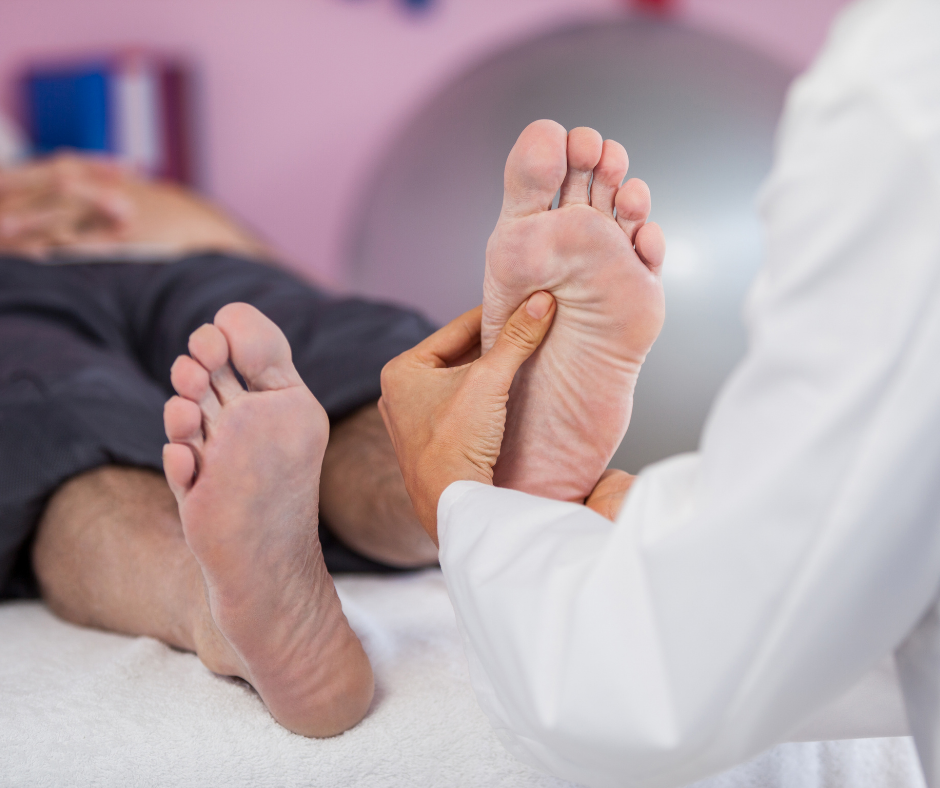It is possible for cut, blisters, and sores to heal on their own. With a little some cleaning and attention the body will heal itself. But if a wound won’t heal after four to six weeks, or if it starts looking worse redder, swollen, leaking fluid, or giving off a bad smell that’s a clear sign something deeper is going on. Sometimes, a sore that starts small can become a non-healing foot ulcer or leg wound If left untreated the wounds can result in severe complications, including amputation in extreme cases.

If you’ve been waiting and waiting for a sore heal, it could be time to seek help.
What causes some wounds to not heal?
There are many common reasons why a wound won’t heal. Understanding these will help you (and your doctor) find the most effective solution for treating it.
If you suffer from diabetes the risk of developing foot and leg ulcers is very high. The high blood sugar levels could affect your nerves (so it’s not possible to feel injuries when they happen) and hinder blood flow, which makes it difficult for even the smallest cuts to get better.
Poor circulation is another main cause, which can be linked to venous and arterial ulcers. If your arterial arteries fail to do their job, then you won’t receive enough nutrients and oxygen to help heal your skin.
If you’re not able to move about, there is a chance that you’ll develop pressure ulcers.
The speed of healing can be affected by other factors that can cause it, such as the age of the patient, certain medications immune-mediated diseases, and inadequate nutrition. Sometimes it’s a combination of these things that makes the wound stay.
How long will healing take and what happens if it isn’t?
You may wonder what the “normal” healing process is. It’s dependent on the severity of your injury and your general health. A minor cut or blister may heal in just few weeks. But if you’re dealing with deep foot ulcers or leg wounds aren’t healing the same way, it could last up to 12 weeks in the event that things are going smoothly.
The important thing to remember is this: if not experiencing noticeable improvement after 4 to 6 weeks, don’t put off treatment. It’s time to consult an expert in wound care. The longer the wound is left open, the greater the risk.
Find the best help for you
Your body’s not telling you that it needs your help since it isn’t willing to heal. The good news? Experts and treatments could make a difference. Our clinic specializes in the treatment of foot and leg injuries that don’t heal. We work with your other healthcare providers and create the best plan to give your body the greatest chance to heal and avoid Amputations.
You can find solutions for advanced wound dressings, blood flow restoration and even hyperbaric treatment. We’ll assist you throughout the way as no one has to face an injury that isn’t healing by themselves.
Final Thoughts
The effects of a laceration that isn’t healing aren’t just physical. They affect you for the rest of your life. There’s possibility. Don’t be afraid to seek assistance if you’re exhausted of having to deal with the pain of a leg ulcer that will not heal, a persistent sore, or a foot injury that isn’t healing. You can live the life you’ve always wanted without constant pain or worry about a swollen wound when you act swiftly.